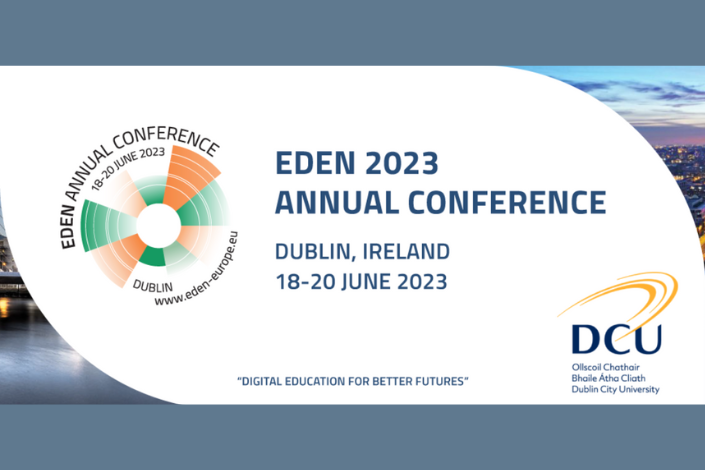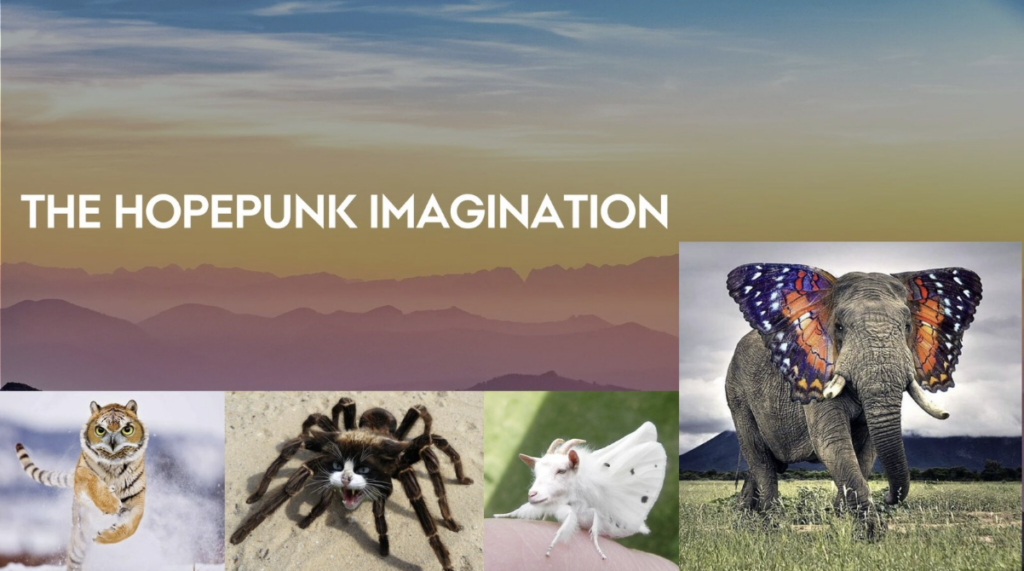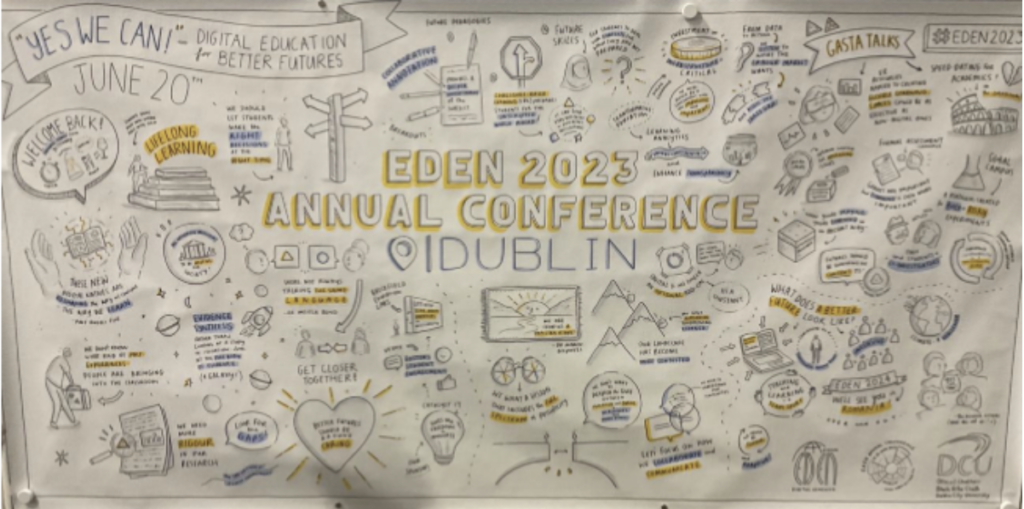
EDEN Digital Learning Europe, Europe’s leading network for advancing digital education, hosted their annual conference in Dublin this summer. It was held in June at the St Patrick’s campus of Dublin City University. Staff and faculty from Hibernia College attended both days of the conference, along with over 300 attendees from the field of higher education all over Europe and beyond.
Hibernia College Faculty and Staff Presentations
Staff from Hibernia College’s Digital Learning Department presented two papers, while lecturers from the School of Education presented a short Gasta presentation and an academic poster, respectively. These items showcased some research projects currently underway in the College, on topics such as the development of communities of practice using the Cohort collaboration app; the development of the College’s institutional research repository (IASC); and using a virtual scenario-based learning simulation for authentic assessment.
Irene O’Dowd, Digital Learning Researcher, and Ann Byrne, Digital Librarian, reflected on the creation of Hibernia College’s research archive (IASC) and what they have learned during the process. Irene O’Dowd and Janet Benson of Learnovate discussed findings from a research project — co-conducted by Hibernia College and Learnovate — on student and faculty usage of our collaboration app, Cohort. Dr John Meegan, Lecturer in Education (Primary), presented virtual scenario-based learning (VSBL) as an integrative, authentic assessment approach. Dr Frank Kehoe, Lecturer in Education (Post-Primary), presented a poster on the topic of community of practice in initial teacher education.
Digital Learning Researcher Irene O’Dowd’s Experience
Irene O’Dowd shares her experience attending (and presenting) at the conference.
This year’s EDEN conference explored the theme ‘”Yes we can!” — Digital Education for Better Futures’. This theme placed emphasis on ‘the art of the possible’ in reimagining teaching, learning and assessment and delivering on the promise of better futures for all. Specifically, the conference theme asked:
1. What does a better future look like?
2. How can digital education contribute to this future?
3. What can you do to help make and shape a better future?
Keynote speakers reinforced the conference theme with optimistic and hopeful contributions about the future of education and the potential role of digital in meeting the challenges we face as educators. Perhaps the most memorable presentation was by Rikke Toft Nørgård, Associate Professor in Educational Design and Technology at Aarhus University, whose call to embrace ‘hopepunk futures’ in education was accompanied by stunning graphics of fantasy creatures.

Another visual treat was the work of graphic artist Ruth Graham, who created dynamic pen-and-paper visuals throughout both days of the conference, capturing elements of the discussions taking place in the main auditorium. This process is known as ‘graphic harvesting‘, and it provided an engaging focal point for interaction and discussion while enhancing the creative, positive mood of the conference.

Topics discussed at the conference included the post-Covid digital transition, inclusivity and access to higher education, the potential of micro-credentials, and the increasing presence of generative AI in the education landscape. The EDEN conference provided us with many valuable opportunities to meet other educators from across Europe, share and exchange knowledge, and access a support network of professionals facing similar challenges.
In a post-conference message, Josep M. Duart, President of EDEN, said that ‘we felt the will to build better futures together in the conference atmosphere — and Yes we can do it! EDEN is Europe’s leading network for advancing digital education, and EDEN’s strength is in its members: individuals, academics and professionals in Digital Education and Higher Education institutions.’